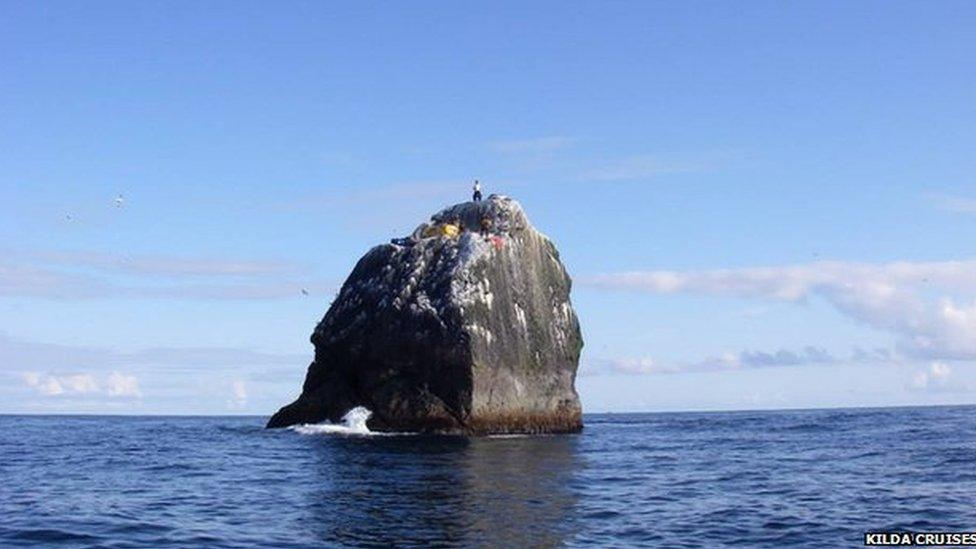Brexit 'could re-open Rockall controversy'
- Published

The UK claimed Rockall in 1955, but the Republic of Ireland, Iceland and Denmark have previously challenged this
Controversy over the ownership of an isolated islet in the north Atlantic could re-emerge between Ireland and the UK after Brexit, it has been claimed.
Rockall is fewer than 300 miles from the western coasts of the Republic of Ireland and Scotland.
The UK claimed Rockall in 1955, but Ireland, Iceland and Denmark have previously challenged that claim.
Sovereignty over the islet was settled in the UK's favour in 2014.
However, some in the Republic have warned that the UK's exit from the EU could cause Britain to "pull up the drawbridge" on international use of the area.
"It could raise the age-old controversy over ownership of Rockall which was more or less resolved between the UK and Ireland in 2014," said Jane Morrice, a former European Commission representative in Northern Ireland.
"The fact that the rock outcrop in the north Atlantic is claimed by the UK as part of Scotland could make it a small but serious point in future negotiations."
She said talks over fishing rights would require a complicated agreement that could make or break Northern Ireland's fishing industry.
Éamon Ó CuÃv, the island affairs spokesman for Fianna Fáil, the Republic's biggest opposition party, said there would be a strong desire among many in the UK fishing industry to "pull up the drawbridge" and ban non-UK fishing boats in UK waters in the event of a hard Brexit.
Sean O'Donoghue, chief executive of the Killybegs Fishermen's Organisation in County Donegal on the north-west coast, said ownership of the actual rock would not be in dispute but there would be an issue over access to the waters.
"We can fish at the minute at Rockall as we have fishing rights there but when the UK leaves they will no longer be part of the Common Fisheries Policy and there will have to be some detailed discussions around the fisheries which are very difficult to resolve."
- Published8 October 2014
- Published6 June 2014